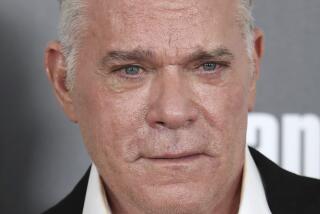OK, they won -- so what’s next?
Pretty much as soon as he’s done celebrating, best actor Oscar winner Jeff Bridges will travel to New Mexico to shoot “True Grit,” the Coen brothers remake of the John Wayne classic that will come out in December. It will be the second movie of the season for Bridges, whose “Tron Legacy” is also set to be released in December.
But don’t expect to see too many other boldfaced names from Sunday’s Oscar podium in movie theaters any time soon.
After starring in three movies in 2009, Sandra Bullock is being ultra-deliberate in selecting her next film. The best actress winner has several movies in development, and though her name has surfaced in connection with a legal comedy called “Bobbie Sue,” she’s yet to choose a new starring vehicle. It’s almost a given we won’t see the star on the big screen in 2010.
An Oscar can significantly boost an actor’s or filmmaker’s career, creating a tidal wave of offers and raising their fees. In the past, stars such as Ben Affleck and Marisa Tomei were vaulted to the A-list because of a statuette, then took a quick succession of jobs that had them appearing in seemingly every third movie that Hollywood produced.
But the path from the Oscar podium to the multiplex these days is more winding.
The majority of studios and independent financiers are cutting back on the number of projects they’re producing. And stars, fearful in this harsh moviemaking climate that one misstep can land them in actor purgatory, are choosier than ever -- especially if an Oscar has dramatically changed the kinds of roles they’re usually offered, as it has for Bullock.
If an awards boost happens, it tends to up the stock mainly of more obscure actors and filmmakers.
“Sandy Bullock’s Oscar will be wonderful for her, and her star has definitely risen,” says Michael Sugar, a manager who represents Academy Award winners such as Steven Soderbergh. “But an Oscar really means more for people who are previously unknown.”
‘Hornet’ honcho
After he began garnering attention for his performance as a sparkly-eyed Nazi in “Inglourious Basterds,” Christoph Waltz, a journeyman German-language actor who never starred in a mainstream American movie before, signed on for starring parts in “The Green Hornet” and the literary adaptation “Water for Elephants.”
Kathryn Bigelow, the veteran filmmaker who won Oscars on Sunday for best picture and best director, has also been cautious about signing on to a new film. The “Hurt Locker” director-producer has turned down a host of jobs on big-budget movies, including an offer to direct the relaunch of the “Spider-Man” franchise -- the job wound up going to “(500) Days of Summer’s” Marc Webb. Instead, she’ll likely concentrate on a passion project called “Triple Frontier” for Paramount that she signed up to do long before the Oscar talk started for “The Hurt Locker.”
An adventure set on the border of several South American countries, “Frontier” is a movie Bigelow will develop with her “Hurt Locker” collaborator Mark Boal. Boal -- who, like Bigelow, has held off on taking another job -- is currently writing the screenplay, so the movie won’t exactly be in theaters next fall either.
Effects-intensive movies also take longer than ever to produce, one reason this year’s awards-season fixture, James Cameron, will probably again be gone for years before resurfacing.
Some 2010 winners also happen to be crossovers from other worlds; best supporting actress winner Mo’Nique, for instance, has a flourishing talk show and wears many other hats. Asked Sunday if the statuette now made her feel like more of an actress than a comedian, Mo’Nique quipped. “I’m a stand-up comedian who won an Oscar.” She has no film projects currently lined up.
The yen to direct
One name to watch will be Geoffrey Fletcher. The surprise winner for best adapted screenplay has said he considers himself a director, and people close to him say he’s contemplating at least four new projects, at least some of them as a director. Fletcher is also writing a screenplay about the Attica prison riot. But he is not signed on to write or direct anything that a studio has thus far decided to make.
Even when emerging talent rides Oscar attention to new and bigger movies, the journey can take years. The 2006 Oscar nominee Bennett Miller has not directed a movie in the four years since he came to the Kodak for his debut, “Capote.” His nomination -- and the golden hardware that sits on the mantle of his star Phillip Seymour Hoffman -- did recently persuade Brad Pitt to approve Miller to direct the upcoming baseball drama “Moneyball.”
There’s also an arid climate for the kind of independently financed movie that some Oscar nominees would normally land between studio gigs. “I’m hoping that nominations will help get some projects off the ground,” supporting actress nominee Maggie Gyllenhaal, who several months ago finished shooting the family comedy “Nanny McPhee and the Big Bang” but has nothing new lined up, recently told The Times.
Part of the issue too, Hollywood veterans say, is a changed awards season. The rigors of the award circuit are more consuming than ever, prompting filmmakers and stars to spend the months before the Oscars campaigning instead of reading or writing scripts.
When new material does come in, it can provide many opportunities. But it can also offer a curse of too much choice, which leads an actor to hold off on making a decision.
“I want to do everything,” Bullock told reporters Sunday night. “Just because I did commercial films doesn’t mean I can’t do wonderful, small art-house films. And just because I won an Oscar doesn’t mean I can’t do something that makes people laugh.”
More to Read
Only good movies
Get the Indie Focus newsletter, Mark Olsen's weekly guide to the world of cinema.
You may occasionally receive promotional content from the Los Angeles Times.







